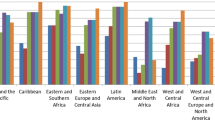Abstract
Civil society organizations (CSOs) are recognized as playing an exceptional role in the global AIDS response. However, there is little detailed research to date on how they contribute to specific governance functions. This article uses Haas’ framework on global governance functions to map CSO’s participation in the monitoring of global commitments to the AIDS response by institutions and states. Drawing on key informant interviews and primary documents, it focuses specifically on CSO participation in Global AIDS Response Progress Reporting and in Global Fund to Fight AIDS, Tuberculosis and Malaria processes. It argues that the AIDS response is unique within global health governance, in that CSOs fulfill both formal and informal monitoring functions, and considers the strengths and weaknesses of these contributions. It concludes that future global health governance arrangements should include provisions and resources for monitoring by CSOs because their participation creates more inclusive global health governance and contributes to strengthening commitments to human rights.
Resumen
El rol de las organizaciones de la sociedad civil en el monitoreo de la respuesta mundial al sida Las organizaciones de la sociedad civil (OSC) son reconocidas por jugar un rol excepcional en la respuesta mundial al SIDA. Sin embargo, hasta la fecha, la investigación detallada sobre cómo éstas contribuyen a funciones específicas de gobernanza, es limitada. Este artículo utiliza el marco de funciones de gobernanza global propuesto por Haas para mapear la participación las OSC en el monitoreo de los compromisos globales de instituciones y Estados frente a la respuesta al SIDA. Basándose en entrevistas con informantes clave y documentos primarios, se enfoca específicamente en la participación de las OSC en el Informe mundial de avances en la lucha contra el SIDA y en los procesos del Fondo Mundial de lucha contra el SIDA, la tuberculosis y la malaria. Se argumenta que, debido a que las OSC cumplen funciones de monitoreo tanto formales como informales, la respuesta al SIDA es única dentro de la gobernanza de la salud mundial, y se consideran las fortalezas y debilidades de estas contribuciones. Se concluye que futuros acuerdos en gobernanza de la salud mundial deberían incluir provisiones y recursos para el monitoreo por la parte de las OSC, ya que su participación genera una gobernanza de la salud mundial más inclusiva y contribuye a fortalecer los compromisos con la defensa de los derechos humanos.



Similar content being viewed by others
Notes
In total 173 submitted the NCPI in 2012 and in 2014 117 countries submitted the complete NCPI (including the CSO section), and 43 countries in Europe and Central Asia submitted responses to a shorter version, the so called Dublin Declaration questionnaire, not including all these questions.
References
Buse K, Blackshaw R, Ndayisaba M. Zeroing in on AIDS and global health post-2015. Glob Health. 2012;8(1):42.
Doyle C, Patel P. Civil society organisations and global health initiatives: problems of legitimacy. Soc Sci Med. 2008;66(9):1928–38.
Haas P. Is there a global governance deficit and what should be done about it?. Geneva: Ecologic; 2003.
Lee K. Civil society organizations and the functions of global health governance: what role within intergovernmental organizations? Glob Health Gov. 2010;3(2):1–20.
United Nations. Declaration of Commitment on HIV/AIDS. United Nations General Assembly Special Session on HIV/AIDS 25–27 June 2001. United Nations. New York.
UNAIDS representative 1. Interviewed by Smith J. 2013.
CSO representative 4. Interviewed by Smith J. 2013.
UNAIDS. United Nations General Assembly Special Session on HIV/AIDS: monitoring the Declaration of Commitment on HIV/AIDS. Guidelines on construction of core indicators. UNAIDS: Geneva; 2013.
NCPI country reports submitted to UNAIDS 2012.
NCPI country reports submitted to UNAIDS 2014.
UNAIDS representative 2. Interviewed by Mallouris C. 2015.
CSO representative 1. Interviewed by Mallouris C. 2015.
CSO representative 2. Interviewed by Mallouris C. 2015.
CSO representative 3. Interviewed by Mallouris C. 2015.
UNAIDS. Global aids response progress reporting 2015, construction of core indicators for monitoring the 2011 United Nations Political Declaration on HIV and AIDS. Geneva: UNAIDS; 2014.
ITPC. Missing the target reports. 2012. http://itpcglobal.org/?page_id=831. Accessed 15 May 2015.
GNP+, Global criminalisation scan. 2015. http://criminalisation.gnpplus.net/. Accessed 15 May 2015.
ICASO, AIDS advocacy alert: reviewing National AIDS responses—how to get involved. 2007. http://www.icaso.org/publications/aa_aug07_FINAL.pdf. Accessed 15 May 2016.
UNAIDS. Shadow reports received. Geneva: UNAIDS; 2012.
UNAIDS. Shadow reports received. Geneve:UNAIDS; 2014.
GFATM, Partnership forum. 2015. http://www.theglobalfund.org/en/partnershipforum/. Accessed 30 April 2015.
Center Fremont. Global fund partnership forum 2011: an independent evaluation. New York: Fremont Center; 2011.
GFATM. A strategy framework for the global fund 2012–2016: draft revisions 1.1 and 1.2. Geneva; 2011. (emphasis added).
GFATM representative 1. Interviewed by Smith J. 2013.
MACRO. The five-year evaluation of the global fund to fight AIDS, tuberculosis, and malaria synthesis of study areas 1, 2 and 3. Geneva: GFATM; 2009.
GFATM representative 2. Interviewed by Smith J. 2013.
Global ICW. Governance manual. Buenos Aires: International Community of Women Living With HIV/AIDS; 2012.
CSO representative 5. Interviewed by Smith J. 2013.
Taylor A, Alfven T, Hougendobler D, Tanaka S, Buse K. Leveraging nonbinding instruments for global health governance: reflections from the global AIDS reporting mechanism for WHO reform. Public Health. 2014;128(2):151–60.
Funding
This study was partly funded by National Cancer Institute, US National Institutes of Health, Grant R01-CA091021. The contents of this paper are solely the responsibility of the authors and do not necessarily represent the official views of the funders.
Author information
Authors and Affiliations
Corresponding author
Ethics declarations
Conflict of Interest
The authors declare no conflicts of interest.
Ethical approval
All procedures performed in studies involving human participants were in accordance with the ethical standards of the institutional and/or national research committee and with the 1964 Helsinki declaration and its later amendments or comparable ethical standards.
Informed consent
Informed consent was obtained from all individual participants included in the study.
Rights and permissions
About this article
Cite this article
Smith, J., Mallouris, C., Lee, K. et al. The Role of Civil Society Organizations in Monitoring the Global AIDS Response. AIDS Behav 21 (Suppl 1), 44–50 (2017). https://doi.org/10.1007/s10461-016-1579-3
Published:
Issue Date:
DOI: https://doi.org/10.1007/s10461-016-1579-3




